Fragments at the University of Potsdam
date » 06-05-2019 20:28
permalink » url

On May 2-4, 2019 Bard College Berlin and the University of Potsdam invite you to the joint symposium “Shifting Frames: Migrant Children, Politics and History”, and the exhibit 'Fragments' by Mario Badagliacca.
This symposium will critically explore policies and cultural representations of child migrants--specifically but not only those labeled as "child refugees"--in the UK and its former colonies the USA, Canada, Australia and South Africa, with comparison to our location of Germany. It aims to think towards frames beyond humanitarianism for understanding and discussing child migration and seeks ways of connecting scholarly research with activism.
On May 2 at 18:00, Professor Jacqueline Bhabha from Harvard University will deliver the keynote lecture "The Human Rights of Child Migrants: An Unfinished Agenda." This public event will take place at the University of Potsdam, Campus Am Neuen Palais, House 8, Rm 0.64, and will be followed by reception.
May 3-4 will see presentations from scholars in addition to short film screenings and photography viewings, as well as a walking tour.
This event is organized by Prof. Dr. Kerry Bystrom, Bard College Berlin; Dr. Sunčica Klaas, University of Potsdam, and Dr. Carly McLaughlin, University of Potsdam.
This major funders of this event are the Thyssen Foundation, the Universitätsgesellschaft Potsdam e.V. and the University of Potsdam, with additional support from Bard College Berlin and AlNatura.
Date & time: May 2-4, 2019
Venue: University of Potsdam, Campus Am Neuen Palais
Location: University of Potsdam, Campus Am Neuen Palais
Fragments by Mario Badagliacca at Cork World Book Fest
permalink » url
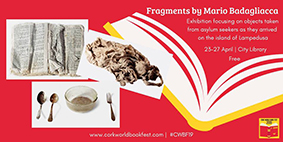
Frammenti, an exhibition by Italian photographer Mario Badagliacca, will run for the week of Cork World Book Fest. It focuses on objects taken from asylum seekers and migrants as they arrived on the island of Lampedusa. Mobile phone parts, battered guidebooks, broken compasses and cigarette packets were all taken, and later disposed of, by the police. In documenting this collection of lost belongings, Badagliacca encourages us to reflect on the value of objects and the value of human life. His photographs tell stories of migration, displacement and hope, as they help us to trace the different subjectivities of their owners; their faces, voices, stories and journeys.
Held in collaboration with the Memory research group of the Centre for Advanced Study in Languages and Cultures, University College Cork.
Cork City Libraries
57-61 Grand Parade, Cork WCR-01-T56
Price: Free
OPENING:
27 April-4 May 2019
Mundo Critico-Revista de Desenvolvimento Cooperação
permalink » url
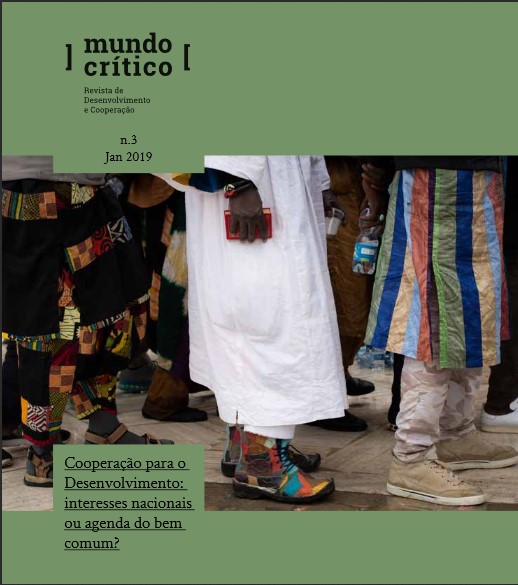
Mundo Critico-Revista de Desenvolvimento Cooperação n.3 2019 online
Por esta 3ª edição da Mundo Crítico passam algumas das questões que hoje se colocam à cooperação para o desenvolvimento, a nível internacional e também nacional, procurando contribuir para um retrato, diverso e a várias vozes, sobre uma realidade que está a sofrer grandes mutações, tanto em termos conceptuais como de políticas e práticas, que podem mesmo pôr em causa a cooperação como valor nas relações entre espaços geográficos, políticos e culturais.
Este número inicia com uma conversa imperfeita, num tom crítico, sobre as actuais tendências da Cooperação para o Desenvolvimento e sobre a necessidade de criar capacidades locais que perdurem. O dossiê saber e circunstâncias inaugura com 6 questões sobre a Cooperação Portuguesa,uma reflexão realizada pelo Conselho Editorial, que procura assim contribuir para o debate necessário (e urgente) no sector. A editoria inclui textos sobre diferentes visões e abordagens de países como a China e a Noruega -, as recentes decisões da Cooperação Portuguesa em matéria de Ajuda Pública ao Desenvolvimento, bem como uma reflexão sobre os profissionais da “indústria” do Desenvolvimento, o sector não governamental nos PALOP ou a actuação e as mudanças nas ONG em Angola. Por fim, surge um texto sobre banda desenhada no feminino e a abertura de caminhos de cooperação e solidariedade.
Os modos de ver a migração para a Europa, pelo olhar do fotógrafo italiano Mario Badagliacca, a partir de objectos de migrantes que desembarcam em Lampedusa são a proposta para esta edição. Já as narrativas apresentam dois trabalhos jornalísticos sobre o bairro do Jamaica, em Portugal, e um reencontro na Etiópia, após a assinatura do acordo de paz com a Eritreia. Recuperamos a editoria inovações (iniciada no primeiro número),com dois exemplos de processos de promoção dos direitos humanos na Guiné-Bissau e ao nível da CPLP e outro de cooperação no ensino entre Portugal e Moçambique. A edição termina com ecos gráficos de banda desenhada e algumas sugestões de leituras no escaparate sobre a Cooperação para o Desenvolvimento na actualidade.
Descarregar revista online: Mundo Critico-Revista de Desenvolvimento Cooperação n.3 2019
Mundo Critico web site link
Mediterranea Saving Humans. La via di terra a Palermo,
Teatro Politeama, 28 October 2018
date » 18-03-2019 12:43
permalink » url
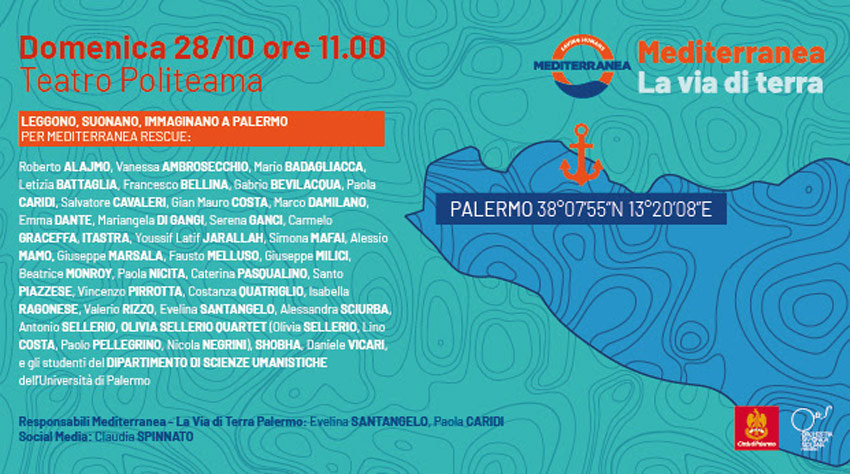
Mediterranea Saving Humans - La via di terra a Palermo, Teatro Politeama 28 October 2018, 11.00 a.m.
With the participation of: Roberto Alajmo, Vanessa Ambrosecchio, Mario Badagliacca, Letizia Battaglia, Francesco Bellina, Gabriele Bevilacqua, Paola Caridi, Marco Da Milano, Emma Dante, Mariangela Di Gangi, Serena Ganci, Carmelo Graceffa, Itastra, Yossif Latif Jarallah, Simona Mafai, Alessio Mamo, Giuseppe Marsala, Fausto Melluso, Giuseppe Piazzese, Giuseppe Milici, Beatrice Monroy, Paola Nicita, Caterina Pasqualino, Santo Piazzese, Vincenzo Pirrotta, Costanza Quatriglio, Isabella Ragonese, Valerio Rizzo, Evelina Santangelo, Alessandra Sciurba, Antonio Sellerio, Olivia Sellerio Quartet, Shobha, Daniele Vicari.
Mediterranea Saving Humans Project
Mediterranea is a platform of different initiatives of civil society coming to the central Mediterranean after the NGOs have been forced to leave in consequence of being criminalized by political rhetoric, even though no inquiry has ever come to any conviction.
Mediterranea bears great resemblance with the NGOs operating in the Mediterranean sea during the last years, observing, documenting and informing the public of what is happening in those waters, not being carried out by anyone nowadays. At the same time, Mediterranea is different: a non-governmental project by the joint work of heterogeneous organizations and individuals, open to all voices from different perspectives, secular and religious, social and cultural, union and political, that feel the urge to share the goals of this project, which aims at giving hope, rebuilding humanity, and defending law and rights.
The action of Mediterranea is moral disobedience and civil obedience. Disobedience to the nationalist and xenophobic public discourse and to the interdiction of witnessing what is happening in the Mediterranean; but obeying to the constitutional and international law, the law on the seas and general human rights, including the obligation of saving those who are in danger and bringing them to a safe harbor.
Facebook Livestream Event
Mediterranea Saving Humans crowdfunding and donations
Valletta European Capital of Culture 2018
permalink » url

To be [defined] aims at articulating two main concepts about displacement, migration and exile: definition and construction on one side and de-construction and resistance on the other one.
Starting from the many representations and definitions of the persons that we call “migrants”, the exhibition investigates the means, rhetorics, rituals, discourses, limits and banalities, the institutions, the imaginary and the relations that construct the object “migrant” and the extent to which this construction is affecting the lives and the imagination of the same subjects. On the other hand, it will also take into account the resistance of the subjects, namely how each person manages to reclaim their subjectivity and their identity as individuals beyond the label they are given of migrants. This act of reclaiming can occur across different lines of struggle, both intimate and public, but all militant, all revolutionary, all related.
5th October, 7.30 pm
Vernissage with the participation of the artists Moira Agius, Mario Badagliacca, Glen Calleja, Katel Delia, Emmanuel Guillaud, Alberto Favaro, Malik Nejmi, Aurélie Percevault, Guy Woueté.
5th October- 4th November 2018
Spazju Kreattiv, Main Staircase and Space C
Valletta
ReSignifications - Palermo Capital of Culture 2018, Manifesta 12
date » 11-06-2018 17:02
permalink » url
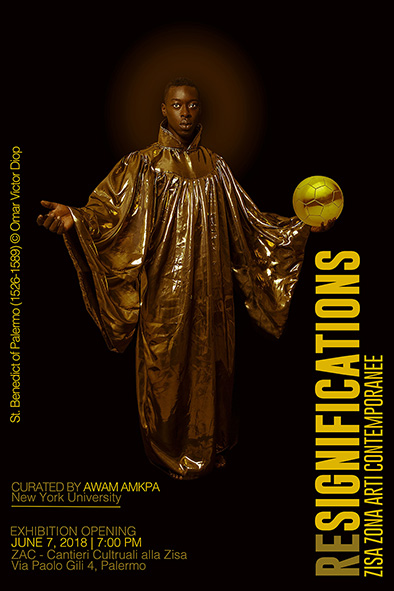
Organized by:
New York University Florence, Tisch School of Arts, in collaboration with Palermo Capitale della Cultura 2018/Manifesta 12 Biennial.
ReSignifications: Black Portraitures
A traveling exhibition curated by Awam Amkpa opens on June 17 Palermo, Sicily:‘Palermo Capital of Culture’ and Manifesta12 Biennial are pleased to open ReSignifications on Thursday June 7th at the Zisa Zona Arti Contemporanee located in Cantieri Culturali alla Zisa. The exhibition first debuted in 2015 at the historic Villa La Pietra – New York University’s Florence campus and the Museo and Galleria Biagiotto in Florence. Now in its fourth reiteration it will have a public reopening this Sunday, June 17th at 4:30pm to mark the Manifesta 12 festivities and events.
After having traveled to Cooper Gallery at Harvard University and to Havana, Cuba as Significations, the highly-acclaimed multi-media art exhibition curated by Awam Amkpa has now returned to Italy. It is one of MANIFESTA 12’s seventy-one Collateral Events jury selected to run in parallel with the biennial. The show also served as the backdrop for the conference ‘ReSignifications: The Black Mediterranean’. Presented by New York University's Tisch School of the Arts, NYU Florence: La Pietra Dialogues, the NYU Institute of African & African American Research and the University of Palermo, the conference took place from June 6 – 9. It was among a series of international conversations breaking new ground in the fields of African and African Diasporic art, literature, cultural theory, history and political practice. The four-day event concluded with two panel discussions aboard the GNV Atlas boat which sailed the Mediterranean Sea taking participants from Palermo to Naples and back.
Opening June 7 till November 30, 2018
Zona Arti Contemporanee - Cantieri Culturali alla Zisa
Via Paolo Gili 4
Palermo - Sicilia
The Game: Exhibition at New York University Florence, February 20, 2018
permalink » url
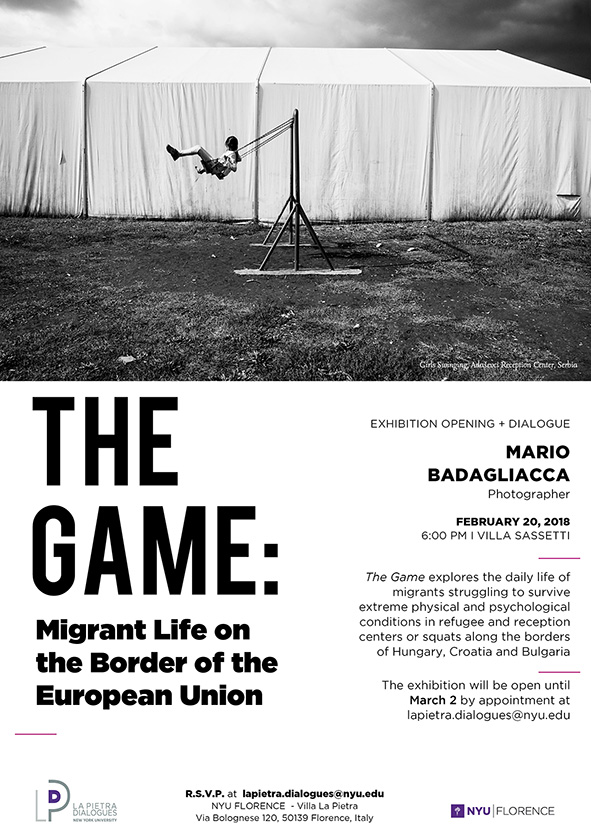
'The Game: Migrant Life on the Border of the European Union' exhibition and talk at New York University Florence.
Opening at Villa Sassetti February 20-March 2, 2018
The Game explores the daily life of migrants struggling to survive extreme physical and psychological conditions in refugee and reception centers or squats along the borders of Hungary, Croatia and Bulgaria.
The exhibition will be open until March 2 by appointment at lapietra.dialogues@nyu.edu
OPENING AND TALK PROGRAM:
6:00 pm Introduction
Ellyn Toscano, Executive Director, NYU Florence
6.05 The Game: Migrant Life on the Border of the European Union
Mario Badagliacca, Photographer
7:00 Q&A
7:30 Reception
La Pietra Dialogues
Location:
New York University Florence,
Villa Sassetti
Mediterranean
date » 16-01-2018 12:21
permalink » url
Buy here: Mediterranean, Upset Press, Usa 2018
From the editors of Warscapes
92 pages, 9 ¼ × 7 ½
978-1-937357-98-6 (paper)
March 2018
The Mediterranean Sea has become a harrowing gauntlet for hundreds of thousands of refugees and migrants each year. Through the intimacy and immediacy of fiction, poetry, photography and reportage, Mediterranean explores these turbulent journeys.
Lyric fiction by Edwidge Danticat, Maaza Mengiste, Boubacar Boris Diop, and Chika Unigwe hones in on the dislocation that marks individual passages. Mario Badagliacca’s haunting photos of found objects recovered from capsized vessels serve as a visual guide to communal tragedy. Poems by Jehan Bseiso and Ali Jimale Ahmed strain with memory and loss, while Hassan Ghedi Santur’s narrative reporting on African migration brings us inside Europe’s detention centers and camps through the eyes of those he meets there, holding the continent to blistering account for the systems it has built and the people it has failed. Evoking the sustenance of home, the book also includes recipes from migrants along with stories connecting them to the places they left behind.
Finally, Mediterranean offers an in-depth syllabus providing additional avenues for study through compelling literature, theory, art, and film.
'Playing The Game' on the journal EUI Life
date » 20-01-2018 13:51
permalink » url
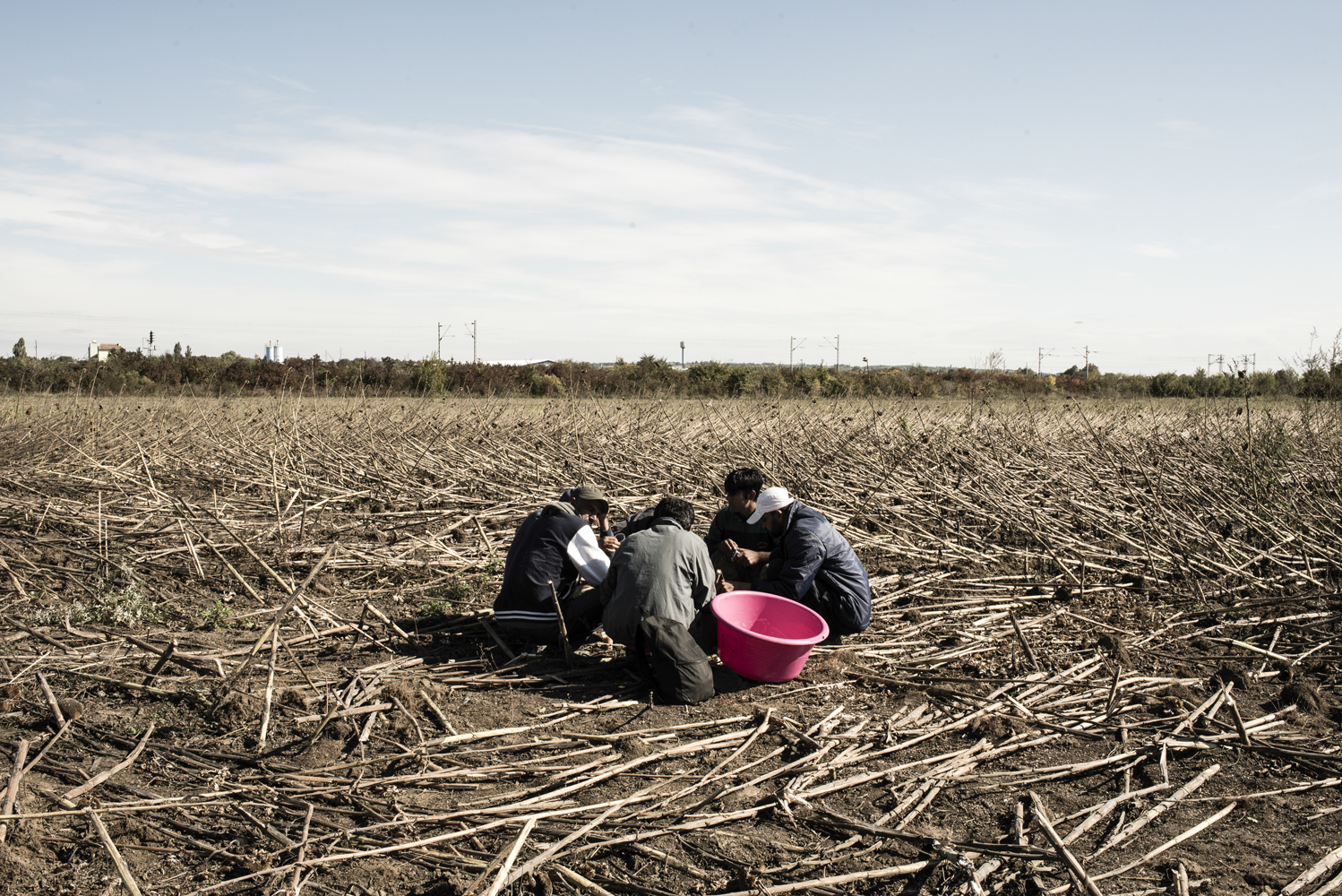
Interview to Mario Badagliacca for EUI Life, on his project and exhibit The Game, hosted at the European University Institute in Florence.
Written by Henry Goodwin on 19th January 2018.
Here the full article
Exhibition at the European University Institute Florence
date » 03-01-2018 00:39
permalink » url
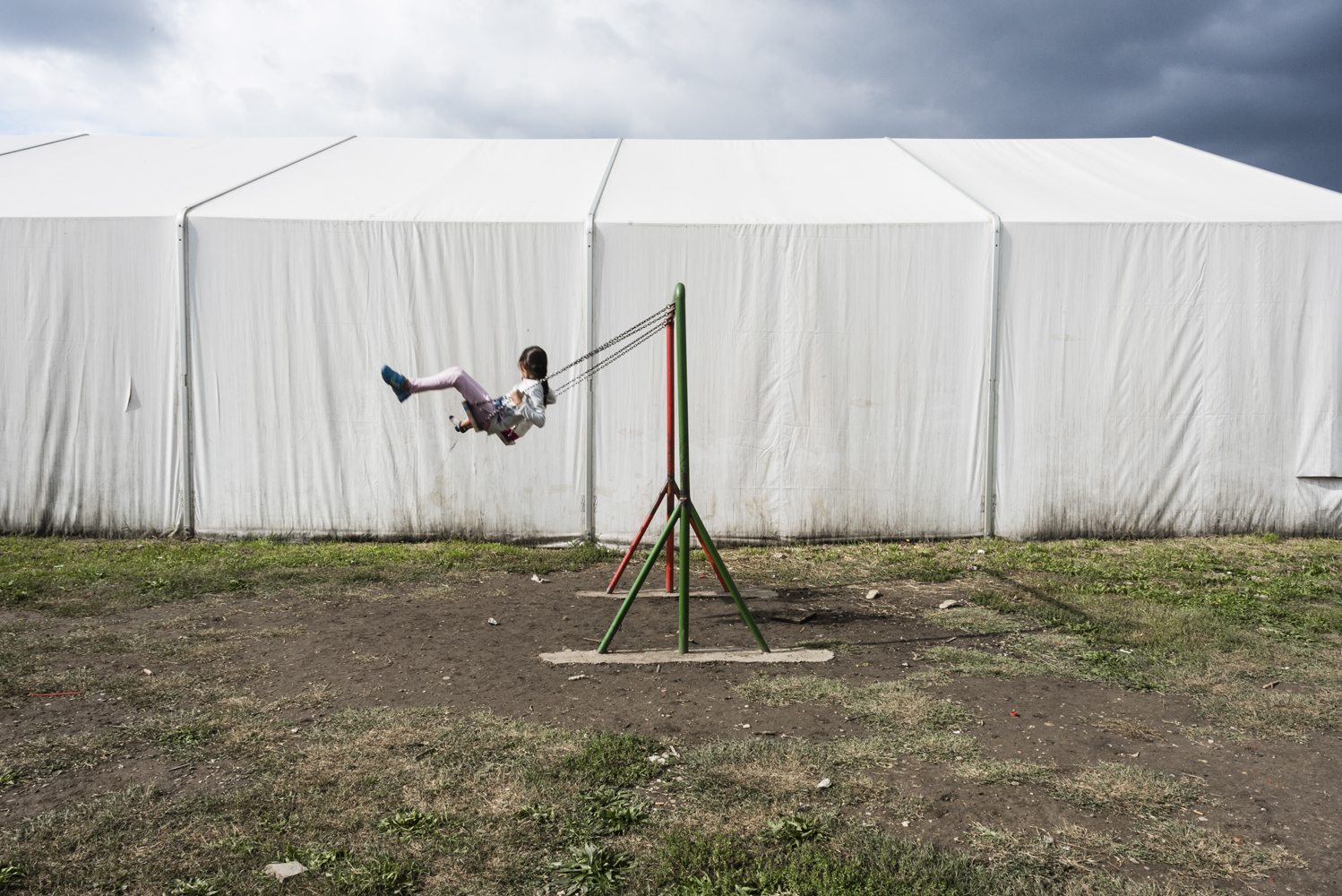
'The Game' exhibition at the European University Institute Florence,
Opening at the Cloister of Badia Fiesolana 10-31 January 2018
The European University Institute in Florence features the photography exhibition ‘The Game’ by Mario Badagliacca, at the conference The Ethics of Migration Beyond the Immigrant-Host State Nexus.
This exhibition is part of an on-going multimedia project documenting experiences of violation of human rights along the East European routes. The overall work is divided into chapters, each showing a specific aspect of migrants’ daily life. This central photographic core comprises 16 photographs that I took during several trips in the region. The goal is to explore life in refugee and transit centers, squats, and in the 'jungle' (the woods), by showing the daily practices used by migrants in order to survive extreme physical and psychological conditions.
‘The Game’ is the phrase used by migrants to refer to the dangerous trip across the Balkan Route. Independently of their origins and native tongues, all migrants use this English expression. They all attempt to cross the Balkan borders, walking or hidden in trains and trucks, up to fifteen or twenty times in a year, taking risky, multiple chances, like in a game. More often than not, the police takes them back to their departure point, often after having physically and psychologically abused them. The guards send dogs to rip them apart, push them to walk barefoot in the snow, beat them, destroy their mobile phones, and seize their money and the few items they carry. Abuses are widely documented by the international NGOs that every day give medical support to migrants.
European University Institute Conference - Program
Location:
European University Institute,
Cloister of the Badia Fiesolana,
Via Badia dei Roccettini, Florence
search

